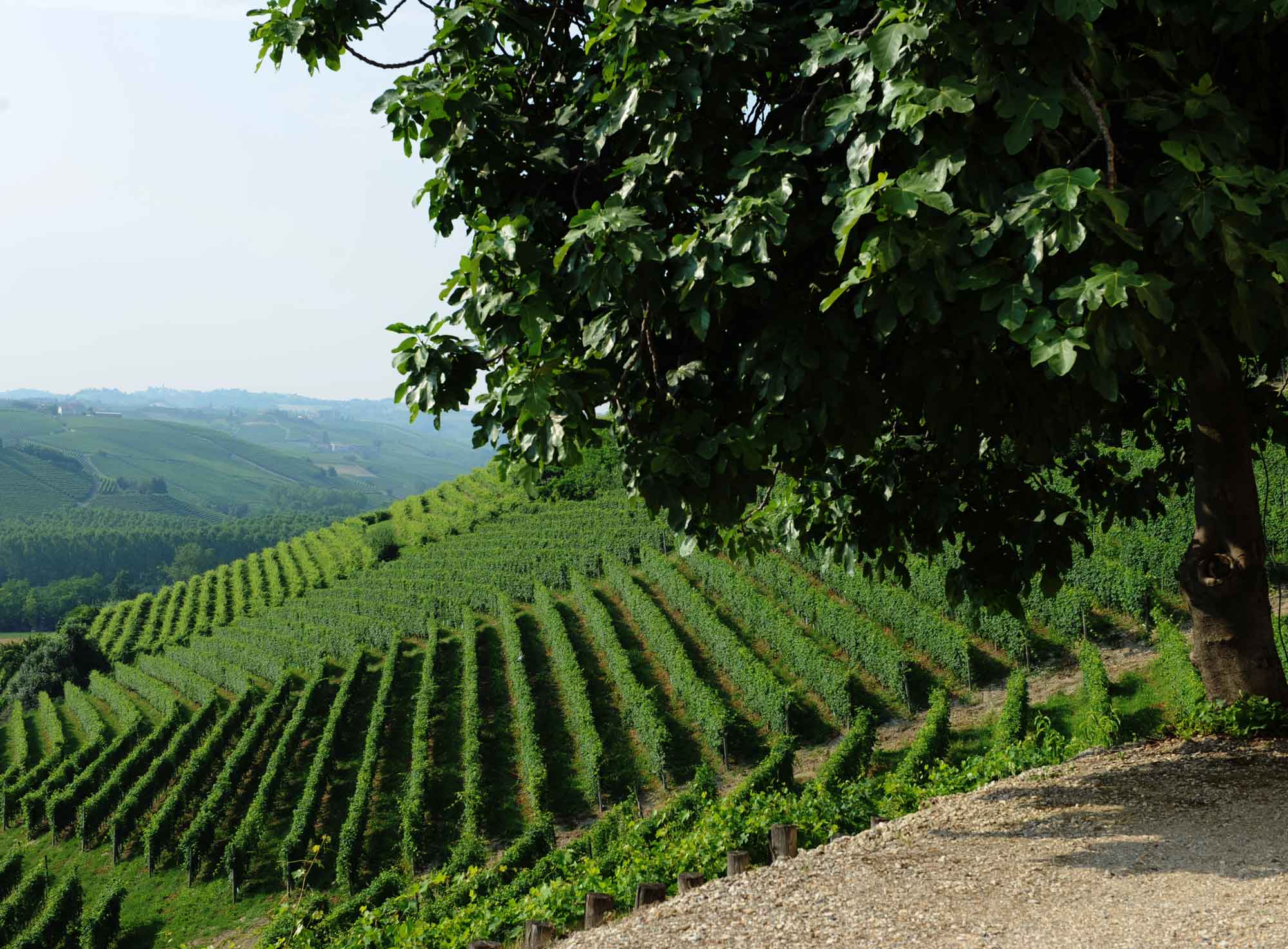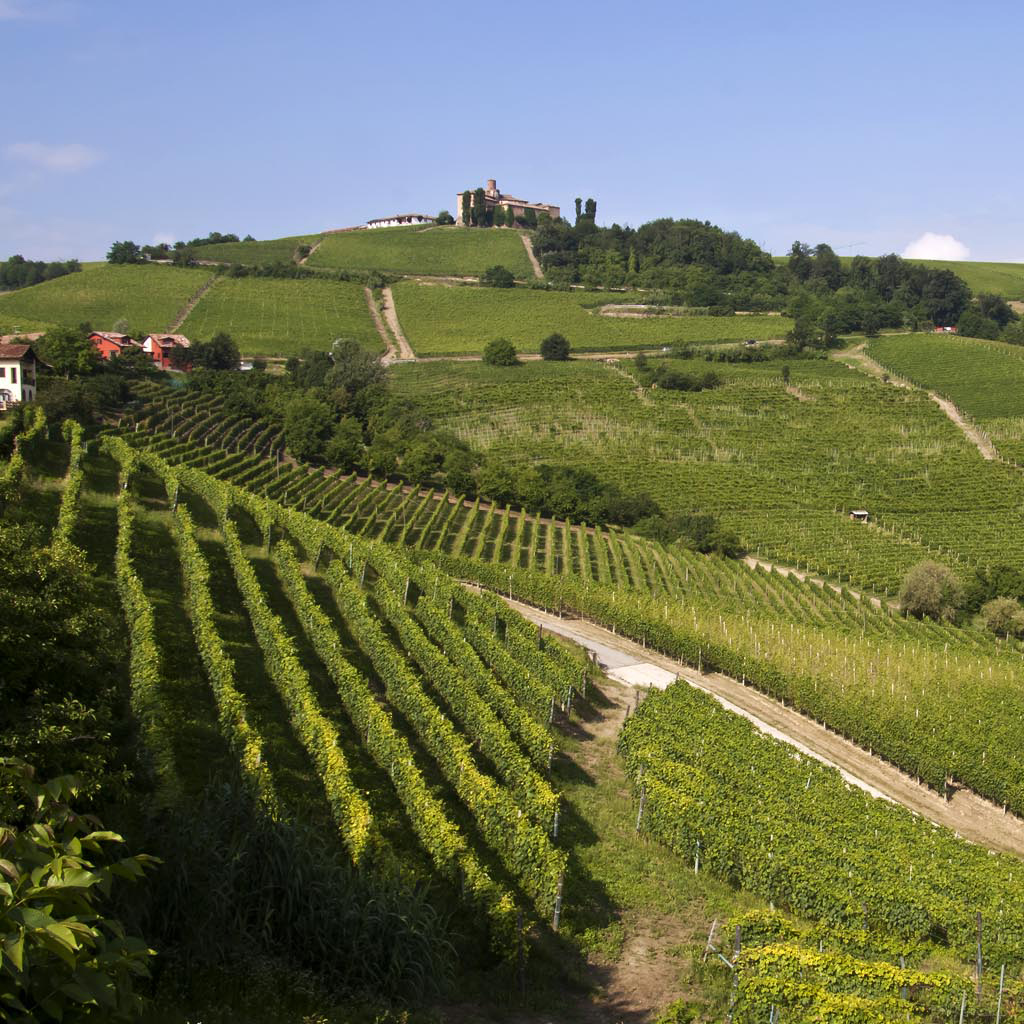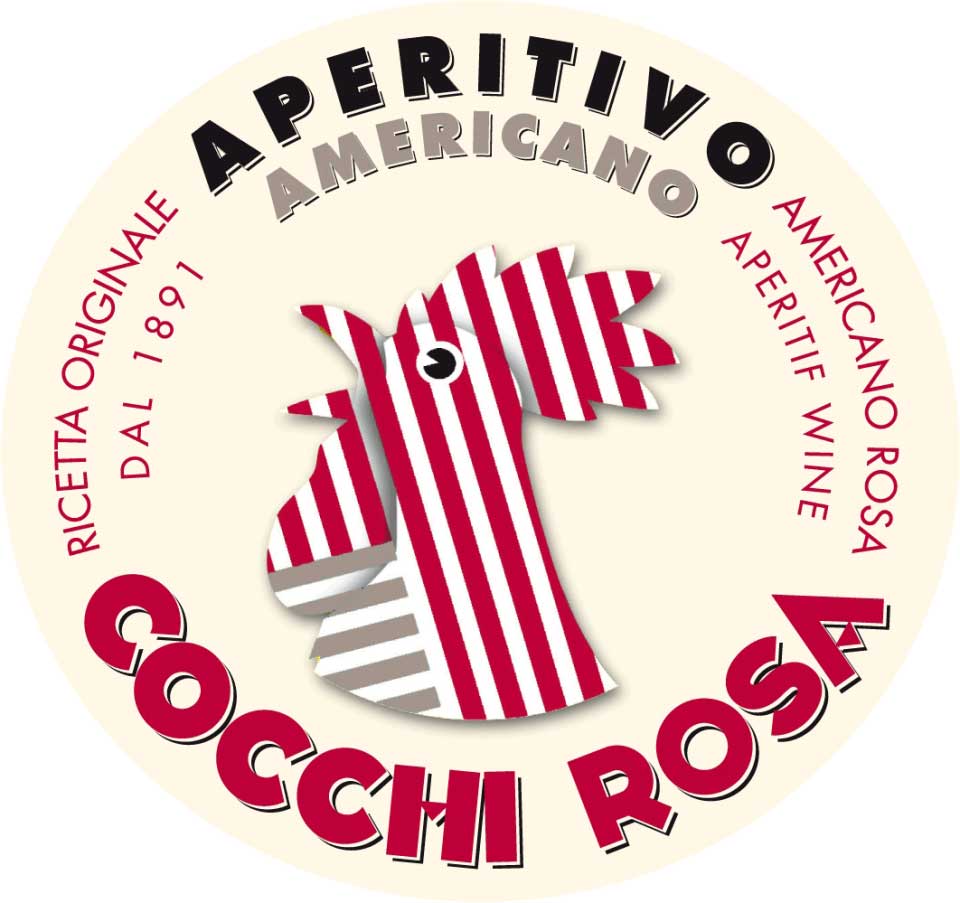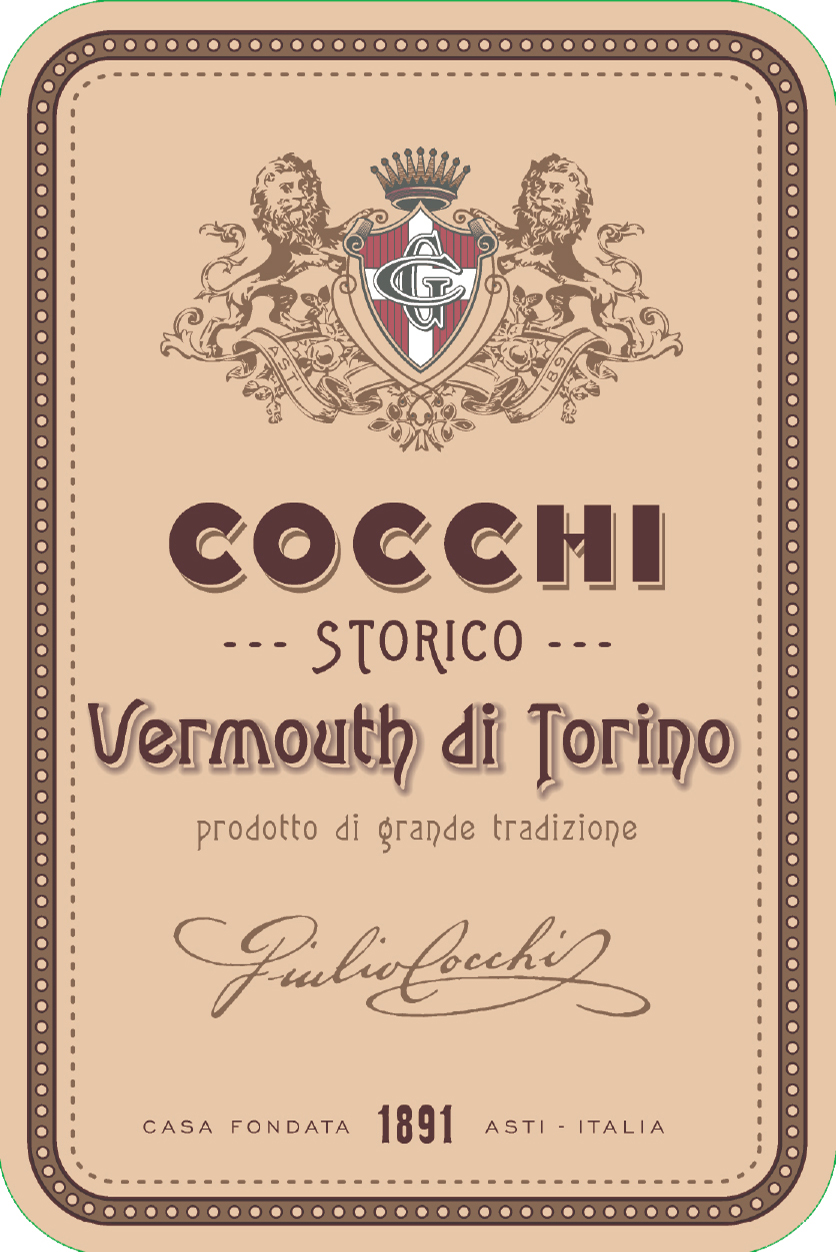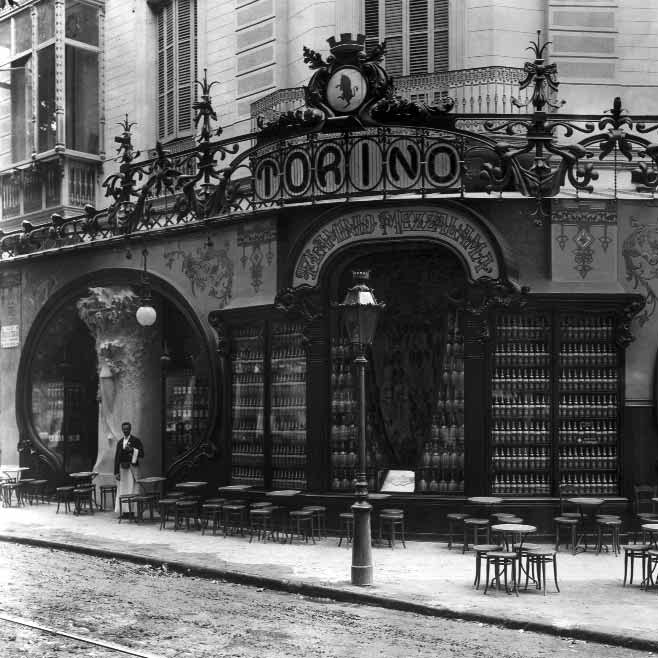Giulio Cocchi Srl
 Base map data ©2017 GeoBasis-DE/BKG (©2009), Google
Base map data ©2017 GeoBasis-DE/BKG (©2009), GoogleCocchi has produced wine-based aperitifs and traditional Piemontese sparkling wines since 1891. Founder Giulio Cocchi was a young pastry chef from Florence, but relocated to Asti in Italy's Piemonte region and established himself as a winemaker. His Aperitivo Americano, Barolo Chinato and defining vermouths became darlings of the Belle Epoque and the Italian Futurist periods, and by 1913 there were twelve Cocchi tasting bars in the region.
Since 1978, the company has been owned and operated by the Bava Family, themselves highly regarded producers of sparkling wine in Monferrato and Langhe. Today, the winery maintains its artisan character and follows Giulio’s original recipes to craft the distinctive wines that have made Cocchi renowned worldwide. Over the past 30 years, Cocchi has revived the forgotten wine categories Barolo Chinato and Vermouth di Torino, and was integral in establishing the Alta Langa DOCG for traditional Piemontese spumante.
Sparkling Wine
Cocchi Asti NV
Italy ➜ Piemonte ➜ Asti DOCG 7.0% ABV
7.0% ABV • Méthode Charmat
Produced from Moscato bianco harvested in the Colline Astigiane foothills for generations, Cocchi Asti DOCG undergoes a slow fermentation in stainless steel vats to ensure the fresh, delicate aromas and flavors that have always been the hallmark of classic Asti. Notes of white lychee, honeysuckle, ripe peach and jasmine give away to signature lemon curd, its gently sparkling character making this wine ideal as a bright aperitif; with fresh berries; or with almond and hazelnut pastries.
Full detailsCocchi Brachetto d’Acqui NV
Italy ➜ Piemonte ➜ Brachetto d’Acqui DOCG 7.0% ABV
7.0% ABV • Méthode Charmat
Produced from rare Brachetto grapes harvested from Acqui Terme in the rolling hills of Monferrato, southeast of Torino and Asti, Cocchi Brachetto d'Acqui DOCG undergoes a slow, cool fermentation in stainless steel vats, emphasizing the buoyancy and freshness of its Brachetto fruit, with evanescent notes of clove, rose petal and violet lending nuance to its charming raspberry and cherry character. Its bright acidity and subtle tannins balance its gentle sweetness and lend persistence. Drier than its peers, it can be enjoyed as an aperitif as well as with fresh berries, soft-ripened cheeses, chocolate mousse and amaretto biscotti.
Full detailsAmericano
Cocchi Americano Rosa
16.5% ABV
Throughout its history, Giulio Cocchi has used the aperitif wine Americano profile to highlight the fine aromatic grapes of Piemonte. In Cocchi Americano Rosa, the Brachetto d’Acqui wine base provides the white rose and rich berry notes typical of the famous sparkling wine of the same variety, while the addition of rose and ginger to the traditional bitter base provides a rounder profile.
Full detailsCocchi Americano Bianco
16.5% ABV
Made to the same recipe since 1891, this Moscato-based aperitif wine has long been a staple of Asti. While the Americano name implies a gentian focus, the wine also includes quinine and citrus for a flavorful, refreshing profile. In Piemonte it is served chilled with ice, a splash of soda and a peel of orange. Cocchi Americano Bianco’s combination of fruit, spice and bitter undertones can perfect a number of classic mixed drinks. This same profile makes it splendid pairing with all kinds of pickles, nuts, charcuterie and cheeses.
Full detailsQuinquina/Chinato
Cocchi Barolo Chinato
16.5% ABV
Renowned in Piemonte since its introduction in 1891, Cocchi Barolo Chinato is a wine of DOCG Barolo infused with quinine bark, rhubarb, ginger, cardamom, cocoa, and a variety of other aromatic spices. Round and rich, yet with the deep back palate one expects of Barolo, this wine possesses the definition necessary to be an ideal digestif or pairing with dark chocolate. Serve as you would a high-quality port or Madeira, or use in lieu of sweet red vermouth in a luxurious Manhattan. You would not be alone in finding this to be the Rolls Royce (or Maserati) of Italian dessert wines.
Full detailsVermouth
Cocchi Vermouth di Torino Extra Dry
Italy ➜ Piemonte ➜ Vermouth di Torino DOP 17.0% ABV
17.0% ABV
Giulio Cocchi brings its unique expression of Piemontese grapes to the world of dry vermouth. Cocchi Extra Dry Vermouth di Torino combines the freshness of a Cortese wine base with local mountain wormwood, Menta di Pancalieri peppermint, and lemon over a backbone of angelica, coriander, and cardamom. Use Cocchi Extra Dry in a Martini with robust gins, or spritz with tonic water. The silky vinous texture of Cocchi Extra Dry is ideal for classic whiskey cocktails that call for dry vermouth, such as the Old Pal and the Scofflaw. At aperitif hour, Cocchi Extra Dry is ideal to pair with young cheeses.
Full detailsCocchi Vermouth di Torino ‘Storico’
Italy ➜ Piemonte ➜ Vermouth di Torino DOP 16.0% ABV
16.0% ABV
The last remaining example of appellation Vermouth di Torino to comply with all of the classical requirements, Cocchi Vermouth di Torino ‘Storico’ has been produced since 1891. Cocchi uses estate Moscato as the wine base, and vibrant, spicy botanicals such as cocoa, citrus, ginger, and rhubarb. In contrast with other popular Italian vermouths, Cocchi Vermouth di Torino ‘Storico’ retains wines of Piedmont as the base and avoids a heavy sheen of vanilla that clashes with other cocktail ingredients. Vermouth di Torino stands apart as one of only two protected geographical indications of origin for vermouth, and is the style referenced by classic cocktail books when discussing “Italian vermouth.”
Full detailsCocchi “Dopo Teatro” Vermouth Amaro
16.0% ABV
The name ‘Dopo Teatro’ refers to the late-evening, “after theater” service at restaurants and cafes in Torino, a gathering time for a sip of something bittersweet and maybe a small bite to eat. This “vermouth amaro” (vermouth with additional bitter elements) starts with the Moscato-based Cocchi Storico Vermouth di Torino, to which winemaker Giulio Bava adds robust Nebbiolo wine, local gentian, rhubarb root, chiretta and quinine. The result is a robust amaro that retains the refreshing acidity of the original vermouth. Ideal for cask strength or peated whiskeys as well as mezcal or gin, or pairing with spicy salami or intense chocolate preparations.
Full details

